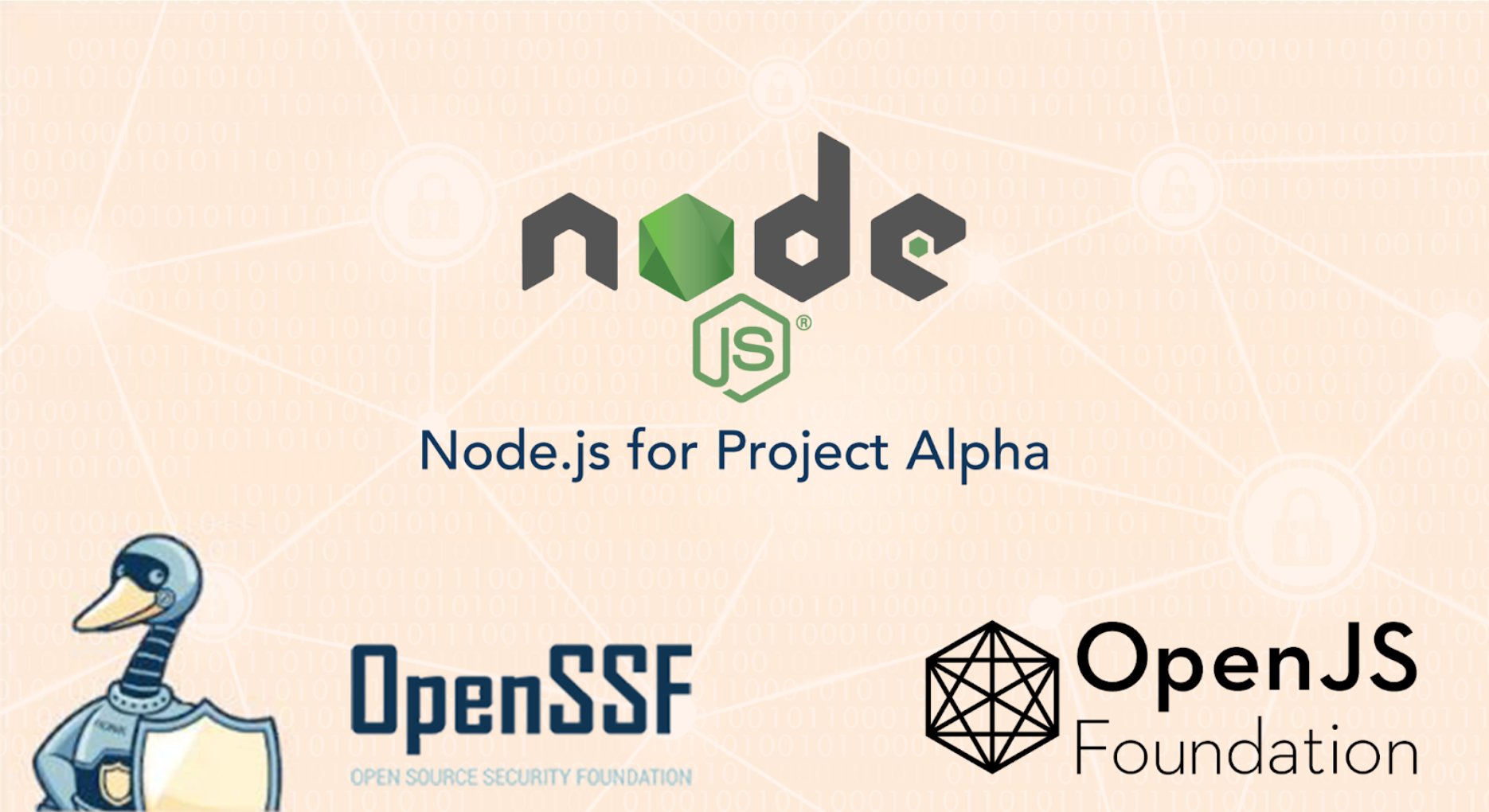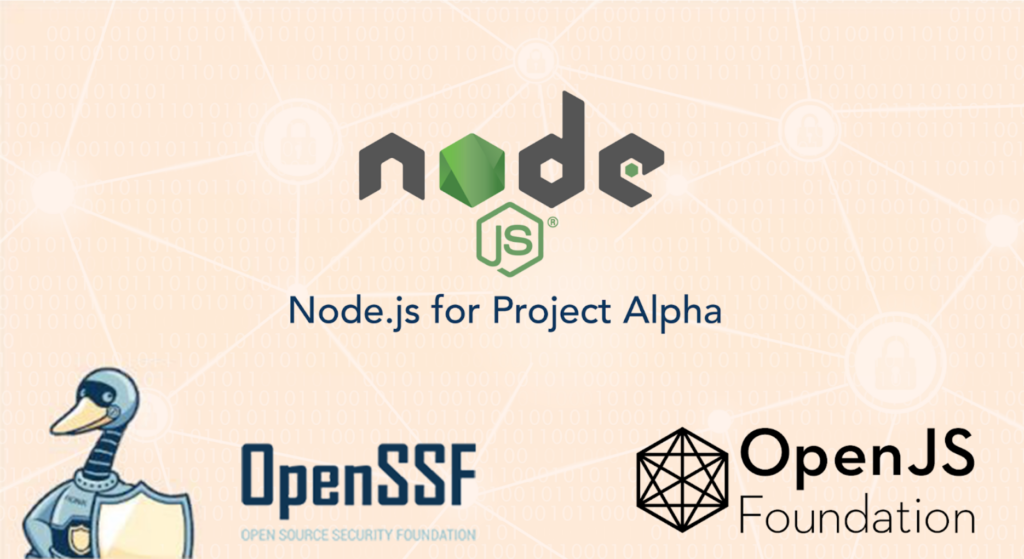

Authors: Brian Behlendorf, OpenSSF, and Robin Bender Ginn, OpenJS Foundation
Today, we’re excited to announce that Node.js is the first open source community to be supported by OpenSSF’s Alpha-Omega Project. Alpha-Omega is committing $300k to bolster the Node.js security team and vulnerability remediation efforts through the rest of 2022, with a focus on supporting better open source security standards and practices.
The open source software project Node.js is everywhere, and people put a lot of trust into the products and services that are built with Node.js, from NASA to Netflix. But many community-led JavaScript projects lack the time, people, and expertise for comprehensive security measures. Few companies that depend on Node.js contribute back to the project. Our hope is this can inspire more organizations that depend upon Node.js to also participate in its security efforts.
This assistance will relieve the pressure on Node.js project maintainers who are strained by market demands for new features while striving for a stable and secure codebase. Specifically, this will bring in security engineering resources from NearForm and Trail of Bits to support the Node.js Technical Steering Committee, help triage reports, steward security releases, improve security broadly for Node.js, and encourage implementing best practices in JavaScript projects across the industry.
Node.js carries a high criticality score for its influence and importance based on parameters established by industry security experts at OpenSSF. Almost 98% of the world’s 1.9 billion websites use JavaScript, the top programming language according to research by RedMonk and GitHub. Node.js – server-side JavaScript – was downloaded over 2 billion times in 2021. It’s pervasive across the industry, used in a significant portion of modern applications.
Both of us (Robin and Brian) are excited about this collaboration and the prospect of setting an example for both the OpenSSF and OpenJS communities.